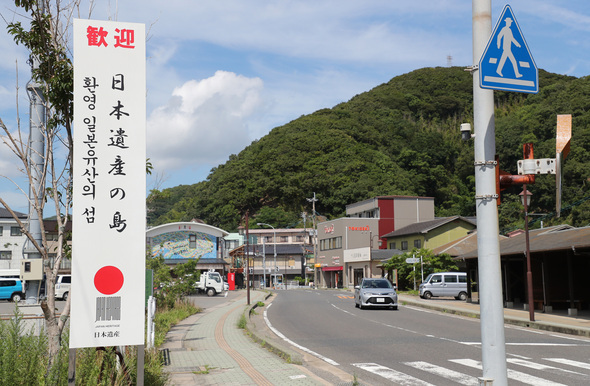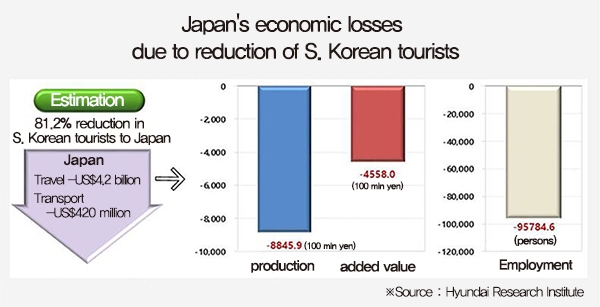 |
|
The local economy on Tsushima Island has taken a big hit from the travel boycott against Japan that South Koreans have launched. The photo shows an empty Hitakatsu Port International Terminal. (Yonhap News)
|
At current rate, economic growth expected to decline by 0.1 percentage points
New analysis shows that Japan will bear the brunt of the economic damage resulting from reduced travel between Korea and Japan. On Aug. 13, Hyundai Research Institute released a report titled, “The Economic Damage and Implications of the ‘Travel Cliff’ Between Korea and Japan,” which predicted that if the current reduction in travel continues, Japan’s economic growth rate will decline by 0.1 percentage points next year, double the 0.05 percentage point decline in Korea’s growth rate. The report used the assumption that trips to Japan by Koreans would plummet by 81.2%, predicting that spending on travel services by Koreans travelling to Japan would fall from the US$5.17 billion record last year to a level close to the 1998 figure of $970 million, the lowest on record over the past 20 years. In response to criticism that the assumption was not realistic, Joo Won, chief of the economic research office at the Hyundai Research Institute, explained, “The number of Korean visitors to Japan last year rose threefold in a span of four years to reach a record 7.54 million, which represents a bubble. In addition to this, the rate at which trips to Japan is being cancelled recently is very high.” He added, “We took into account the fact that the number of Chinese tourists visiting Korea fell by 75.1% in nine months during the THAAD conflict in 2016.”
 |
|
Japan‘s economic losses due to reduction of S. Korea tourists
|







